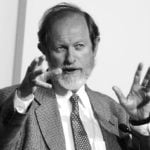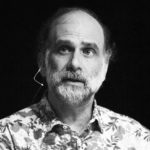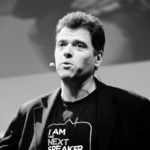Susan Greenfield
 Susan Greenfield is a research scientist, author, broadcaster, and member of the United Kingdom House of Lords. Her work focuses on the neuroscience of consciousness and the impact of technology on the brain, along with research areas dealing with the treatment of Parkinson’s disease and Alzheimer’s disease. She is CEO and founder of Neuro-Bio Ltd, a biotech developing a novel treatment for neurodegenerative disorders.
Susan Greenfield is a research scientist, author, broadcaster, and member of the United Kingdom House of Lords. Her work focuses on the neuroscience of consciousness and the impact of technology on the brain, along with research areas dealing with the treatment of Parkinson’s disease and Alzheimer’s disease. She is CEO and founder of Neuro-Bio Ltd, a biotech developing a novel treatment for neurodegenerative disorders.
Greenfield has held research fellowships in the Department of Physiology Oxford, the College de France Paris, and NYU Medical Center New York. She has been awarded 32 Honorary Degrees from British and foreign universities and in 2000 was elected to an Honorary Fellowship of the Royal College of Physicians. Further international recognition of her work has included the ‘Golden Plate Award’ (2003) from the Academy of Achievement, Washington, the L’Ordre National de la Légion d’Honneur (2003), from the French Government, and the 2010 Australian Medical Research Society Medal.



 Sherry Turkle is the Abby Rockefeller Mauzé Professor of the Social Studies of Science and Technology in the Program in Science, Technology, and Society at MIT, and the founder and current director of the MIT Initiative on Technology and Self. Her current research focuses on psychoanalysis and human-technology interaction. She has written several books examining the psychology of human relationships with technology, especially in the realm of how people relate to computational objects. She is an expert on culture and therapy, mobile technology, social networking, and sociable robotics.
Sherry Turkle is the Abby Rockefeller Mauzé Professor of the Social Studies of Science and Technology in the Program in Science, Technology, and Society at MIT, and the founder and current director of the MIT Initiative on Technology and Self. Her current research focuses on psychoanalysis and human-technology interaction. She has written several books examining the psychology of human relationships with technology, especially in the realm of how people relate to computational objects. She is an expert on culture and therapy, mobile technology, social networking, and sociable robotics. Eli Pariser is an author and Internet activist. His book, The Filter Bubble: What the Internet is Hiding from You, is a New York Times bestseller, and his TED talk on the same topic has been seen over 2 million times and was called one of the top talks of the year by TED curator Chris Anderson.
Eli Pariser is an author and Internet activist. His book, The Filter Bubble: What the Internet is Hiding from You, is a New York Times bestseller, and his TED talk on the same topic has been seen over 2 million times and was called one of the top talks of the year by TED curator Chris Anderson.

 Lelia Green is an educator, professor, and a senior lecturer at the School of Communications at Edith Cowan University, Perth. She is the author of Technoculture: From Alphabet to Cybersex and the editor of Framing Technology: Society, Choice and Change.
Lelia Green is an educator, professor, and a senior lecturer at the School of Communications at Edith Cowan University, Perth. She is the author of Technoculture: From Alphabet to Cybersex and the editor of Framing Technology: Society, Choice and Change. Lewis Mumford was a sociologist, philosopher of technology, and literary critic. Particularly noted for his study of cities and urban architecture, he had a broad career as a writer. Some of Mumford’s notable works are The City in History, Technics and Civilization, and The Myth of the Machine.
Lewis Mumford was a sociologist, philosopher of technology, and literary critic. Particularly noted for his study of cities and urban architecture, he had a broad career as a writer. Some of Mumford’s notable works are The City in History, Technics and Civilization, and The Myth of the Machine. Clifford Nass was a professor of communication at Stanford University, and a renowned authority on human-computer interaction. He is widely known for his work on individual differences associated with multitasking and how technology affects the brain.
Clifford Nass was a professor of communication at Stanford University, and a renowned authority on human-computer interaction. He is widely known for his work on individual differences associated with multitasking and how technology affects the brain.



 Jerry Mander is an activist and author, best known for his 1977 book, Four Arguments for the Elimination of Television. His most recent book, The Capitalism Papers, argues against capitalism as a sustainable and viable system.
Jerry Mander is an activist and author, best known for his 1977 book, Four Arguments for the Elimination of Television. His most recent book, The Capitalism Papers, argues against capitalism as a sustainable and viable system. Tim Berners-Lee is a computer scientist and engineer, best known as the inventor of the World Wide Web. He is currently a Professor of Computer Science at the University of Oxford.
Tim Berners-Lee is a computer scientist and engineer, best known as the inventor of the World Wide Web. He is currently a Professor of Computer Science at the University of Oxford.